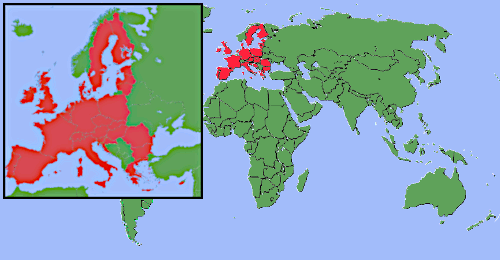
Circle the area on this map

A. The United Kingdom of Great Britain and Northern Ireland voted in a 2016 referendum to leave the EU. But, British leaders have been unable to agree to any deal with the remaining 27 EU members on terms for leaving. The so-called Brexit threatens to slow economic growth in the UK and the rest of Europe.
D. The first six members – Belgium, France, West Germany, Italy, Luxembourg and Netherlands – formed the European Coal and Steel Community in 1951, which evolved into the European Economic Community and eventually the EU.
B. After unmarked Russian forces and local militiamen seize the Crimean Peninsula from the Ukraine, Russia annexed the territory. Many nations, including the United States, considered the annexation illegal and imposed economic sanctions on Russia. President Trump has called the EU an “economic foe” and raised tariffs on some EU goods.
C. A civil war in Syria caused almost half the country’s people to flee their homes and many of those to flee the country. Almost 1 million of Syrian refuges sought asylum in Europe. The arrival of Syrians and other immigrants from southwest Asia and from Africa led to a political backlash in Europe.